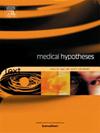巨核细胞增多症:免疫性血小板减少症的潜在致病机制,导致巨核细胞成熟受损和血小板生成减少
IF 2.1
4区 医学
Q3 MEDICINE, RESEARCH & EXPERIMENTAL
引用次数: 0
摘要
免疫性血小板减少症(ITP)是一种自身免疫性疾病,由外周血小板破坏增加和骨髓巨核细胞(MKs)生成血小板不当引起。ITP 的病理生理学复杂且多因素,至今仍未完全明了。然而,抗血小板自身抗体的产生以及表达 Fcγ 受体(FcγR)的巨噬细胞(Mθ)通过抗体依赖性细胞吞噬作用破坏抗体包裹的血小板被认为是关键机制。糖蛋白(GP)Ⅱb/Ⅲa 是抗血小板抗体的主要靶点,通过与 FcγR 相互作用,导致脾脏 Mθ 吞噬血小板。由于 GPⅡb/Ⅲa 通常在血小板及其来源的 MKs 上都有表达,我们推断骨髓 Mθ 可能存在对 MKs 的部分吞噬(肯定是逆行吞噬),从而导致 ITP 中颗粒状 MKs(或不产生血小板的 MKs)数量增加。我们进一步假设,被 "咬 "的 MKs 无法维持其正常的成熟功能。这种逆行吞噬机制可能会对理解 ITP 中 MKs 的形态改变、成熟缺陷和血小板生成减少带来新的启示,并为针对骨髓中 MKs 和 Mθ 相互作用的治疗调整提供有吸引力的意义。本文章由计算机程序翻译,如有差异,请以英文原文为准。
Trogocytosis: A potential pathogenic mechanism in immune thrombocytopenia leading to impaired megakaryocyte maturation and reduced platelet production
Immune thrombocytopenia (ITP) is an autoimmune disease due to increased peripheral platelets destruction and inappropriate bone marrow production of platelets by megakaryocytes (MKs). The pathophysiology of ITP is complex and multifactorial, which remains not fully understood. However, the production of antiplatelet autoantibodies and the destruction of antibody-coated platelets through antibody-dependent cellular phagocytosis by macrophages (Mθ) expressing Fc gamma receptor (FcγR) are regarded as the key mechanisms. Glycoprotein (GP) Ⅱb/Ⅲa is the main target of antiplatelet antibodies leading to platelet phagocytosis by splenic Mθ, through interactions with FcγR. As GPⅡb/Ⅲa is normally expressed both on platelets and the MKs from which they are derived, we inferred that partial phagocytosis (definitely trogocytosis) of MKs by bone marrow Mθ might exist, leading to the increased amount of granular MKs (or non-platelets-producing MKs) in ITP. And we further hypothesized that the “bitten” MKs cannot sustain their normal function of maturation. Such trogocytosis mechanism may shed new light on the understanding of morphology alterations, maturation defects and decreased platelets production of MKs in ITP, and provide appealing implications in therapeutic modifications targeting the interplay of MKs and Mθ in bone marrow.
求助全文
通过发布文献求助,成功后即可免费获取论文全文。
去求助
来源期刊

Medical hypotheses
医学-医学:研究与实验
CiteScore
10.60
自引率
2.10%
发文量
167
审稿时长
60 days
期刊介绍:
Medical Hypotheses is a forum for ideas in medicine and related biomedical sciences. It will publish interesting and important theoretical papers that foster the diversity and debate upon which the scientific process thrives. The Aims and Scope of Medical Hypotheses are no different now from what was proposed by the founder of the journal, the late Dr David Horrobin. In his introduction to the first issue of the Journal, he asks ''what sorts of papers will be published in Medical Hypotheses? and goes on to answer ''Medical Hypotheses will publish papers which describe theories, ideas which have a great deal of observational support and some hypotheses where experimental support is yet fragmentary''. (Horrobin DF, 1975 Ideas in Biomedical Science: Reasons for the foundation of Medical Hypotheses. Medical Hypotheses Volume 1, Issue 1, January-February 1975, Pages 1-2.). Medical Hypotheses was therefore launched, and still exists today, to give novel, radical new ideas and speculations in medicine open-minded consideration, opening the field to radical hypotheses which would be rejected by most conventional journals. Papers in Medical Hypotheses take a standard scientific form in terms of style, structure and referencing. The journal therefore constitutes a bridge between cutting-edge theory and the mainstream of medical and scientific communication, which ideas must eventually enter if they are to be critiqued and tested against observations.
 求助内容:
求助内容: 应助结果提醒方式:
应助结果提醒方式:


